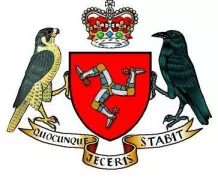The Isle of Man's enhanced status on the world financial stage following its inclusion on the G20 'White List' has given the industry a substantial lift in the international arena.
The Island has consistently worked towards developing an international centre of excellence and is committed to international standards on tax transparency which has been an integral component designed to strengthen financial stability. The move to automatic exchange of information under the EU Savings Directive is a further demonstration of the Isle of Man's lead role in this area.
Global fiduciary services provider ILS chose to centre its corporate and trust activities in the Isle of Man almost two decades ago. Its global reach covers a hugely diverse and widely spread client base through Eastern Europe, India, Australia and the US. The company's Chief Executive Chris Eaton explains why the G20 decision reinforces the Isle of Man's central business strategy:
'The inclusion of The Isle of Man on the G20's White List reinforced the Island's long held position that it is not necessarily the rate of tax that marks a jurisdiction out as being "good" or "bad" in the eyes of the supra-national bodies, but the extent to which any particular jurisdiction is willing to engage with the wider world and commit to an appropriate level of transparency in their own internal and international dealings. The fact that neither of the Island's recent tax initiatives – the 0% corporate tax rate and the £100K tax cap on individuals – prevented the Island from being embraced by the G20 as "substantially compliant" with internationally agreed tax standards handsomely demonstrates this.
So where now for the Island? Achieving White List status is not a means to an end in itself and should be seen as little more than a step along the way to continued acceptance by our various neighbours and trading partners. The G20 and other supra-national bodies, constituted in the main by the large high-tax jurisdictions in Western Europe and North America, will continue to move the goalposts for all the smaller island nations such as the Isle of Man in a further attempt to reduce what they consider to be "tax leakage" from their coffers. The Island will need to have a clear strategic course planned for the months and years ahead in order to maintain its competitive position and to ensure, as far as one is able, that any unpredicted moves by the G20 or others can be responded to in a timely and appropriate manner without undoing the good that has gone before.
This will mean that the business landscape of the Island will continue to change for the foreseeable future, and those offering international services from the Island will need to continue to re-engineer their businesses accordingly to take advantage of these changes. At ILS we have already identified a client profile that has been in transition for the last few years. Fewer and fewer private clients, particularly those from within the EU, are coming to us for structuring and asset protection vehicles. However, they are being replaced by what we call "international corporates"; companies which may not (yet) be big enough to seek a listing, but which are more than merely an individual's alter ego. These international corporates are seeking a location from which they can operate their global business with certainty as to tax treatment and transparency and respectability as far as their location is regarded by their trading partners. For so long as the Island continues to follow its strategy of transparency and executes further TIEA's and DTA's, I believe that we will see more and more of these sorts of businesses migrate or establish in the Isle of Man. To the extent that these operations are generally quite active they generate substantial fees not only for the CSP sector, but also for the legal and accounting sectors and the banking community, and to this extent they probably represent a more valuable client base for the Island than the private clients they seem to be replacing.
As I've said, the White List inclusion of the Island is not an end in itself, but it is a significant milestone along the road that the Island has been travelling for some time; and one which the Island needs to continue along. If the results of the changing landscape continue to bring success to the Island as have the changes to date, then those that are willing to adapt will regard the Island as an extremely desirable place from which to do business.'
The content of this article is intended to provide a general guide to the subject matter. Specialist advice should be sought about your specific circumstances.

